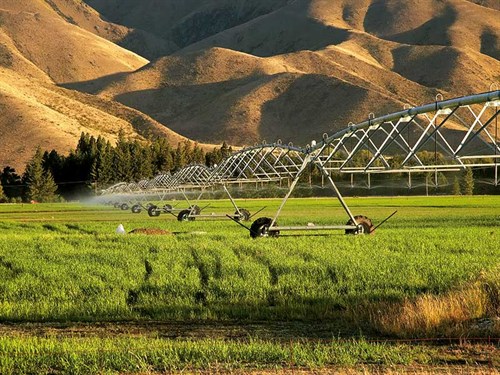Farm advice: tackling anti-farming sentiment
With opinions swaying towards anti-farming in NZ, it's time for the primary sector to get together and address the critics.
There are two characters from my childhood who have grown to become great, iconic New Zealanders – Fred Dagg and Wal Footrot.
The men behind these characters, John Clarke and Murray Ball, understood rural New Zealand and the people who lived there. They created lovable, flawed characters that we could relate to. Back then, all New Zealanders were a little bit country.
Now, there’s a chasm between urban and rural, a growing divide that both Fred and Wal would struggle to bridge. Instead of cartoons on the antics of Dog, and the Pongo and Footrot communities, the media today serves up an almost-daily dose of farmer bashing.
No longer do you need science, facts, data, or history to understand why New Zealand’s freshwater resources are under pressure. You just need an opinion, a keyboard, and/or a loud voice.

Take former television presenter, Nadine Higgins. She wrote in the Sunday paper about how unfair it was that she can’t take her dog for a swim in any of the Hawke’s Bay rivers because a dog died in one of them recently. She went on to suggest it was because of farmers (alternative facts suggest that it was actually because of a blue-green algal bloom unrelated to farming, but let’s not let science get in the way of a good opinion).
It’s not just a national shame, Nadine says (about the dog dying and water quality), but a "National" shame. You see what she did there – shifted the blame from farmers to politicians. National, she says, have created a freshwater crisis because they let in too many cows. I’m not one to be nit-picky but history doesn’t agree with you, Nadine.
The biggest increase in dairy cow numbers was under the last Labour government’s stewardship, when cow numbers went from 3.2 million in 1998 to 4.3 million in 2008. The numbers peaked at just more than five million and are now tracking back down again.
Not content with knowing little about water quality or cow numbers, Nadine went on to say that the Land and Water Forum (LAWF) – set up to advise the government on freshwater management – is "bleeding members who say their advice is being ignored".
She is correct in that three of its members have resigned because no one was getting alarmed enough about their alarmist, activist agendas. Calling the departure of three from a forum of almost 70 a bloodbath might be overstating it a bit. The forum still retains a number of knowledgeable, capable members and organisations, including IrrigationNZ, making a tangible and positive contribution to the development of good policy.
Nadine’s baseless blaming has become, sadly, the norm in the ongoing debate over water quality and management. During our recent visit to Wellington, Greens’ Catherine Delahunty spoke about her ‘distrust of the collaborative process’ in relation to resource management, stating that it had been hijacked by people with an agenda and was now the realm of a ‘privileged few’.
She, too, was referencing the LAWF along with the Canterbury Water Management Strategy and the Zone Committees, which are centred around the principles of collaboration.
To hear a ‘green’ advocate dismissing a style of governance that is central to their own ethos struck me as almost oxymoronic. As I sat there trying to reason with her and defend collective governance, I had a light-bulb moment. I realised why we have such a problem with having a rational debate and finding, if not solutions, at least common ground: it’s because we’ve stopped listening to each other.
In the mad rush to get our opinion across or defend our position, we’ve created a bias filter. We no longer listen to people or organisations with whom we disagree.
People aren’t leaving the LAWF or splintering away from Zone Committees because they’re being ignored. They’re doing it because they refuse to listen to, or accept, other people’s or groups’ opinions and positions.
How can this be healthy? Do we teach our kids to throw a tantrum when they don’t get their own way? Or do we teach them to be tolerant, to be quiet when others are talking, and to accept the opinions of others even though they might be quite different to theirs?
Recently, I was driving with one of the iwi reps on a Zone Committee and they spoke of their frustration at the ‘hijacking’ of the meetings by certain factions. It was disheartening to listen to. Here we have a group of people dedicated to, and passionate about, managing their catchment, people who have accepted the call to action but who are being increasingly thwarted by activism.
I welcome the recent call to action from Federated Farmers president, Dr William Rolleston. He has challenged the primary sector to get together and present a ‘united front’ to address the anti-farming rhetoric. Instead of attacking critics, the primary sector should tell their stories about how they care for water and land, their animals, and their communities. Scientists then need to back them up by revealing the issues that need to be addressed and how the industry is responding to them.
Human beings like being connected in a positive way. That’s why so many of us get involved in zone committees, regulatory processes, as representatives on councils, and user and care groups.
We are not ‘the privileged few’ as Catherine Delahunty called us. We are the listening posts for our communities.
Keep up to date in the industry by signing up to Farm Trader's free newsletter or liking us on Facebook


.jpeg)
.jpg)
.jpeg)

.jpg)
.jpeg)
.jpg)
.jpeg)





